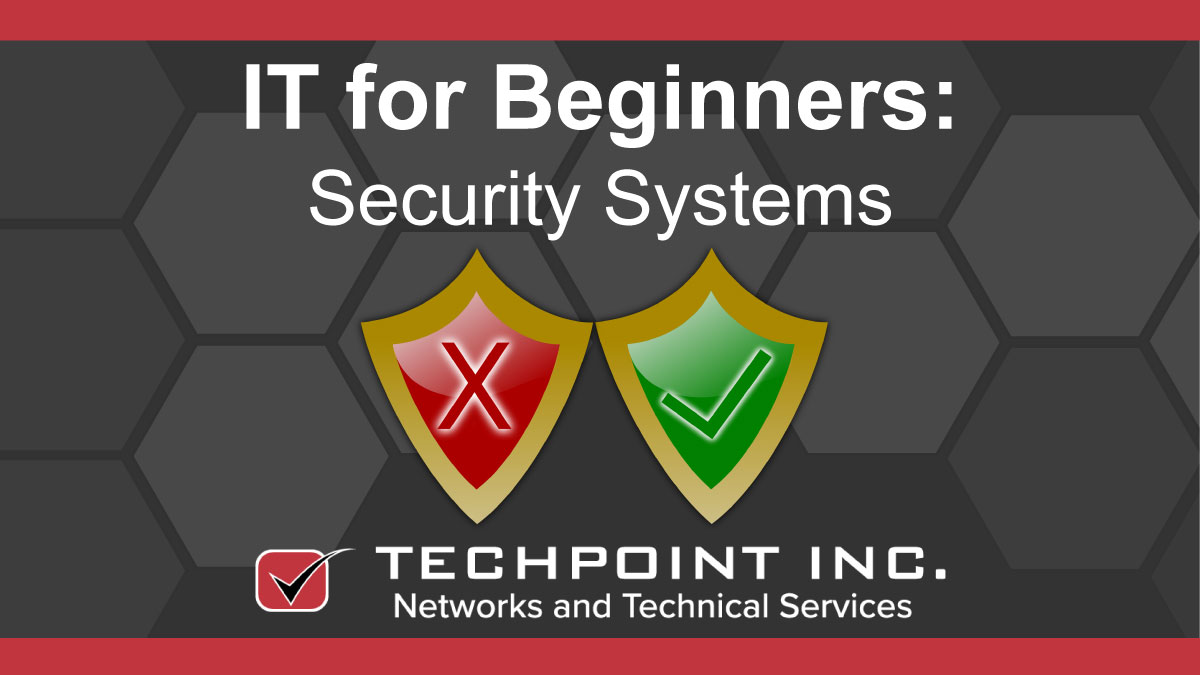Continuing on with our ‘IT for Beginners’ series, today, we’ll talk a little bit about security systems; why you need them, what they are, and how they fit into your overall infrastructure.
Everyone’s heard about computer hackers, email viruses, and other malicious software programs. Hackers are out there to exploit poorly secured systems to their own advantage, viruses can disrupt your network and destroy your data, and malware can hold you ransom to malicious people or organizations. But how do you stop them getting into your network and onto your computers? Well there a number of measures that you can take, they’re can be quite cost-effective, and indeed some are already built into your software and hardware systems.
Let’s run through some of these security systems, going from the internet, right down to your individual users.
Cloud Security
Cloud security Systems, such as CloudFlare, operate around your domain, hosting server, and website, and can have a range of components, such as firewalls, anti-virus, and anti-denial-of-service attack. A DDoS (Distributed Denial of Service) attack attempts to flood your web server, website, or application with a massive number of requests in order to crash it, disrupt it, and take it offline. Cloud Security can help to prevent this type of attack.
Website Security
Website security systems, such as WordFence, operate within and around your website, and help prevent spam to your blog, virus attacks through your site, and malicious login attempts from hackers.
Firewalls
Operate on (and most-often embedded within) your internet router, and also on your computers and servers; sometimes even throughout your network if it’s large or complex enough. Firewalls prevent malicious traffic from entering and infecting your network, as well as providing secure channels for remote users and services connecting to your network and servers.
Anti-Virus & Anti-Malware Software
Anti-virus software, such as McAfee, is installed on your servers, computers, and mobile devices, and gives you a first-line defense against security threats, whether you’re connected to the company network or working remotely.
Email Security
Email Security software, like TitanHQ products, operate on your email systems – both on the internet (for webmail) and inside your network on your email servers and your email applications, to protect you from spam, viruses, Trojan horses, and other malicious code and downloads.
Access Control
This operates at the network user account level, ensuring that users only have access to the programs, data, and services that they need to do their job, thus minimizing exposure and windows of opportunity for malicious users and hackers.
User Vigilance
Finally, users need to be educated in security best practices – what emails not to open, websites to avoid etc., and processes and direction need to be put in place to guide and document these procedures.
Backups
If anything does go sideways, you’ll need full backups to restore your operation to a functional level.
For more advance information, and for help in securing your systems, contact TechPoint now.
